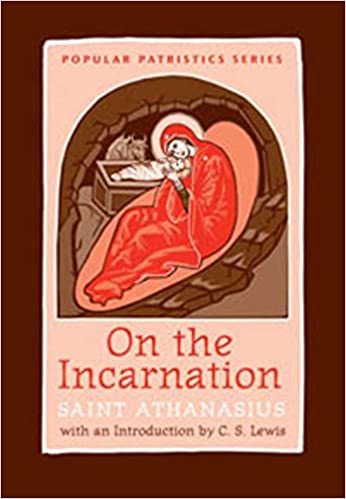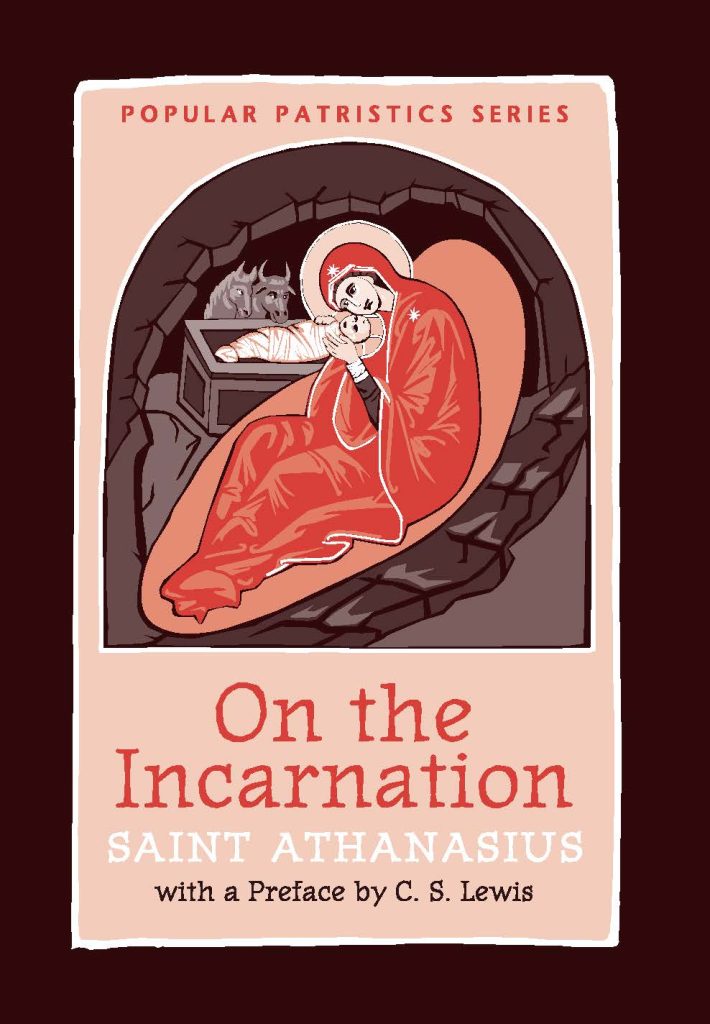In this study, we read through St. Athanasius’ classic work On the Incarnation. Athanasius gives us the very framework for understanding the reasons and reality of the Incarnate Logos in the person of Jesus Christ. In this lesson, I have used Fr. John Behr’s Introduction, C.S. Lewis’s Introduction, and excerpts from Reading Scriptures with the Church Fathers by Christopher Hall. This study covers seven weeks. (A few of the original emails have been lost.)
(Autumn 2014)
Introduction to St. Athanasius’ “On the Incarnation” by C.S. Lewis
We need the books that will correct the characteristic mistakes of our own period. And that means the old books.
On the Incarnation – Creation and Fall, pt.1
For Athanasius, we can only understand the importance and necessity of the Incarnation if we understand that the same agent that created the world (the Logos) is that which becomes incarnate in Jesus of Nazareth.
On the Incarnation – Creation and Fall, pt.2
One of those concepts within chapter one (section 4) is that sin causes us to return through corruption back into non-being. Lewis’ book The Great Divorce, is a story of people in hell who are given the glimpse and opportunity to reside in heaven and the book describes this very process of people becoming non-being due to their sin.
On the Incarnation – The Divine Dilemma, pt.1
Throughout this chapter, however, Athanasius continuously goes back to the cause of the Incarnation, which is that God is Good (s.6) and is moved with compassion towards us, pitying our race for our limitations, and condescending to our corruption (s.8).
On the Incarnation – The Divine Dilemma, pt.2
Athanasius says the Son became Incarnate so that he “might become in dying a sufficient exchange for all.” What is the “exchange” of which he speaks? Who are the parties to the transaction and what is being exchanged? Does this exchange require that Jesus is fully God?
On the Incarnation – Its Solution in the Incarnation, pt.1
In Chapter 3, Athanasius sets forth a second reason for the Incarnation and that was so that we may fully know God and thus become fully human.
On the Incarnation – Its Solution in the Incarnation, pt.2
As we immerse ourselves within an understanding of the Incarnation, don’t lose sight of ultimately what Athanasius is saying – that God’s very wisdom from which time itself was created and which is incomprehensible, immutable, impassible, and incorruptible inserted itself within its creation and became subject to change, suffered, and died for us out its essential nature of love and compassion.
On the Incarnation – On the Death of Christ, pt.1
Athanasius speaks of Christ’s death as a debt being repaid. Remembering the first several chapters, think through to whom the debt was owed and how the Passion satisfies that debt.
On the Incarnation – On the Death of Christ, pt.2
Think through why Athansius writes that the Incarnation, by itself, is insufficient to bring about the restoration of a fallen humanity, and why the Incarnate Christ had to die on the Cross and not through some other method.
On the Incarnation – The Resurrection, pt.1
Within this chapter, Athanasius sets out two broad proofs for the Resurrection: 1) a Christian’s fearlessness towards death, especially among the martyrs, and 2) the daily witness of Christ’s work in a believer.
On the Incarnation – Refutation of the Jews, pt.1
In the last portion of “On the Incarnation,” Athanasius directly confronts both the Jews and the Gentiles as to their respective inability to recognize Jesus as the Incarnate God.
On the Incarnation – Refutation of the Jews, pt.2
The question arises, however, as to whether a Jew or any person can simply read the Hebrew Scriptures (the Old Testament) and come to the conclusion that Jesus is the Christ without that person first believing that Jesus is the Christ. Must faith precede understanding.
On the Incarnation – St. Athanasius (d. 373)
The presence and love of the Word had called them into being; inevitably, therefore when they lost the knowledge of God, they lost existence with it


